April 14, 2025 | 12:15 GMT +7
April 14, 2025 | 12:15 GMT +7
Hotline: 0913.378.918
April 14, 2025 | 12:15 GMT +7
Hotline: 0913.378.918
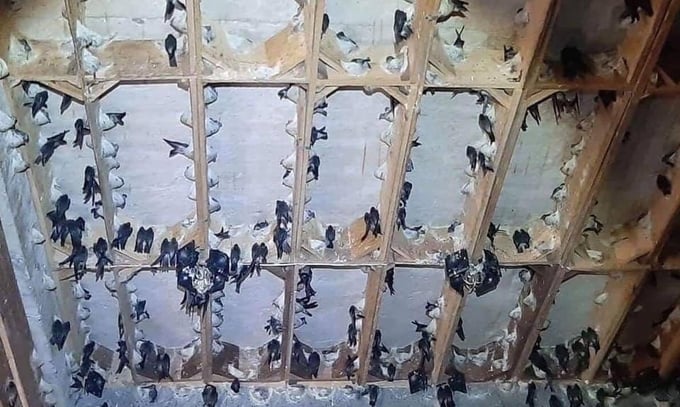
Vietnamese bird's nests are of very good quality and have great potential for export to the Chinese market. Photo: KS.
Mr. Pham Duy Khiem, Chairman of Phu Yen Bird's nest association, and Deputy Chairman of Vietnam Bird's nest association stated that the signing of the Protocol on officially exporting bird's nest products to China is a significant milestone for the Vietnamese swiftlet industry in order to promote market development and ensure stable output for the foreseeable future.
According to Mr. Pham Duy Khiem, the Department of Animal Health and the General Administration of Customs of China have required that the exportation of bird's nests to the Chinese market be carried out in accordance with the required procedures. The majority of businesses adhere to and adequately prepare for the standards of production facilities, human force, material source, plant facilities, and equipment.
The Department of Animal Health has also provided businesses with instructions on how to complete their documentation in a timely manner. Accordingly, the Department of Animal Health has evaluated nine sets of documentation from nine companies and sent them to the General Customs Department of China for further formal evaluation in accordance with the standards required by China.
The Vietnam Quoc Yen Joint Stock Company in Van Giao commune, Tinh Bien district (An Giang) is one of nine entities that have submitted their documentation to the China General Customs Department. This business satisfies ISO 22000, HACCP, and FDA standards, among others, and has a workshop space of over 1.4 hectares. The factory's processed bird's nest products are not only reputable and of high quality for domestic consumers, but also bear the Vietnamese bird's nest brand for export to China and international markets.
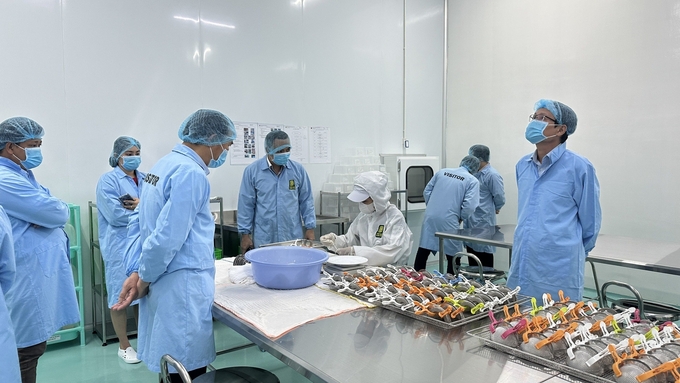
Deputy Minister Phung Duc Tien and the Department of Animal Health delegation visited the Vietnam Quoc Yen factory. Photo: DK.
Along with a delegation from the Department of Animal Health, Deputy Minister of Agriculture and Rural Development Phung Duc Tien recently visited and worked at Vietnam Quoc Yen's factory. During this visit, the Deputy Minister praised Vietnam Quoc Yen Joint Stock Company's efforts in completing the bird's nest export project and emphasized that investing in a high-standard bird's nest production factory demonstrates a long-term vision with the objective of achieving sustainable bird's nest export.
The Deputy Minister also emphasized the importance of correctly positioning Vietnamese bird's nest products and promoting brand development on an international platform in order to maximize the value of Vietnamese products. According to the Department of Animal Health, as of 10 October, China's General Customs Department had completed online inspections of three out of nine companies that had registered to export bird's nest products and submitted supporting documentation.
On October 17, the General Customs Department of China conducted an online inspection of Vietnam Quoc Yen Joint Stock Company. According to Mr. Pham Duy Khiem, China's General Customs Department deemed Vietnam Quoc Yen Joint Stock Company to be one of the export factories fulfilling the requirements for bird's nests.
In addition, the remaining businesses have made every effort to prepare and finish their documentation. Mr. Khiem is optimistic that Vietnam's bird's nest will soon be officially exported to the Chinese market due to the efforts of these enterprises in recent years.
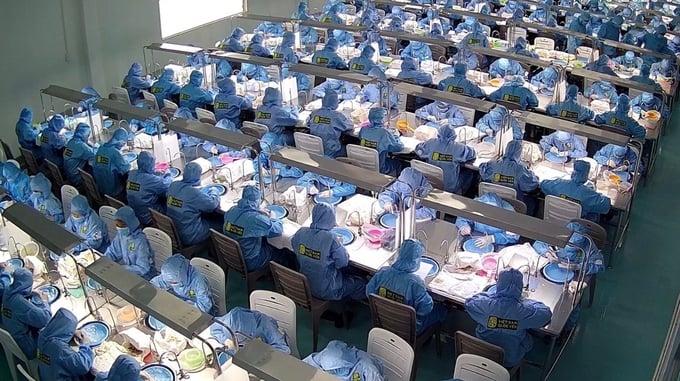
A corner of the bird's nest processing factory of Vietnam Quoc Yen Joint Stock Company. Photo: KS.
The export of swiftlet nests to China will provide numerous opportunities for the Vietnamese bird's nest industry, ensure the product's consumption, generate substantial economic benefits, and encourage the growth of swiftlet cultivation and nest processing.
The economic value and exportability of bird's nests are considerable. Therefore, since 2019, the Ministry of Agriculture and Rural Development has negotiated with its Chinese counterpart and submitted dossiers to the General Administration of Customs of China regarding the exportation of bird's nests to China via official channels.
Moreover, Vietnam and China share a lengthy frontier, which is advantageous for Vietnam's trade, transportation, and supply of bird's nests to its northern neighbor. This gives Vietnamese bird colonies an advantage over those from other countries.
According to Mr. Pham Duy Khiem, the General Customs Department of China has identified issues that continue to impede the progress of businesses participating in the export registration process, primarily pertaining to the thoroughness of their preparations. Factors such as factories, production processes, and food safety and hygiene conditions are central to these concerns. Our businesses have had ample time to prepare and ensure that they adhere to these standards in order to avoid making any errors, as they are fundamental components of the standards required by China from the outset. Nonetheless, some companies have been somewhat negligent in addressing these problems.
Translated by Linh Linh
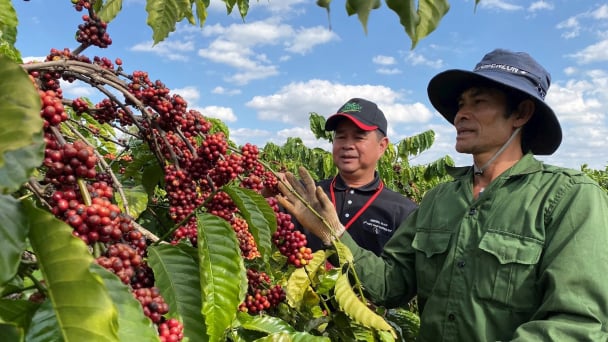
(VAN) Businesses emphasize fairness and equality when integrating social factors into their sustainable development strategies.

(VAN) French organizations and enterprises propose that Thai Binh province provide potential and long-term cooperation contents related to climate change response and green industrial development.
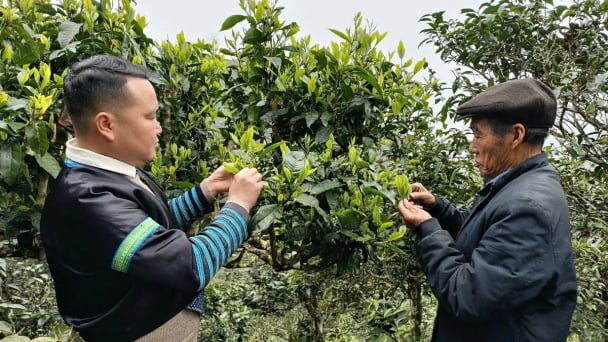
(VAN) Shan Tuyet tea is considered a 'heavenly treasure'. The H'mong people allow the tea to grow naturally, adhering to organic production principles, with the aim of exporting the product.
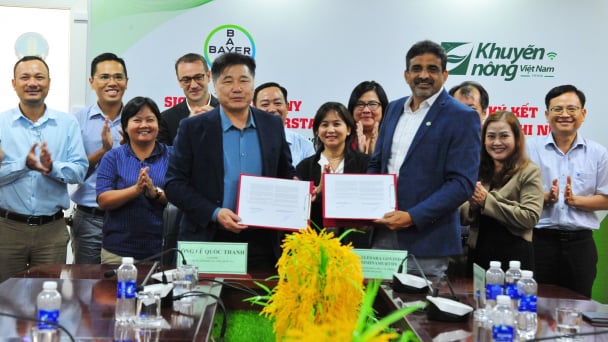
(VAN) Bayer Vietnam and the National Agricultural Extension Center have signed a partnership agreement to expand the development of effective and safe farming models for rice, durian, and coffee.
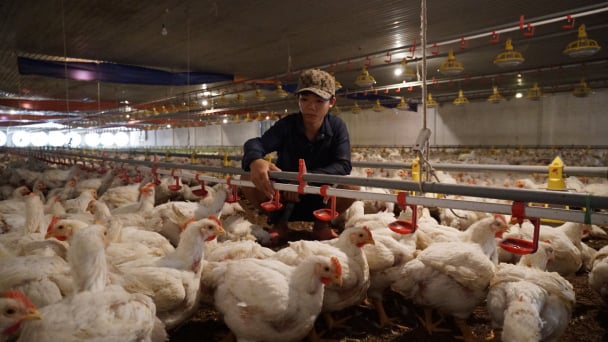
(VAN) Tay Ninh province possesses all the favorable conditions, from natural advantages to geographic location and social harmony, to drive economic development, particularly in attracting investment and advancing modern livestock farming.
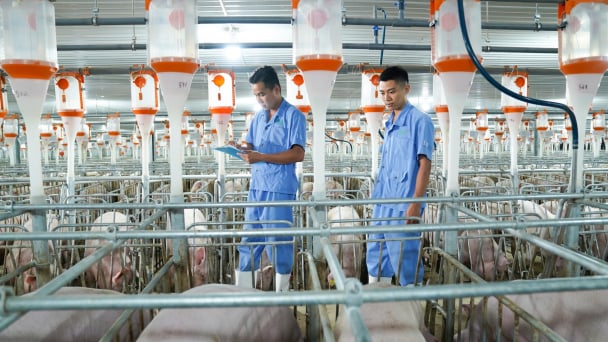
(VAN) Notably, every link in BAF's entire closed livestock value chain Feed - Farm - Food has received international certification.
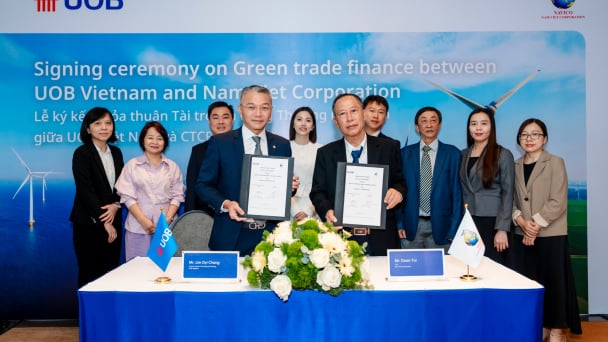
(VAN) UOB Vietnam has recently signed a green credit agreement with NAVICO to develop sustainable aquaculture that meets international standards.